Iran Says Israel Cannot Attack 'Even In Dreams'

Iran’s deputy foreign minister has said Israelis cannot even dream of attacking Iran despite numerous attacks, assassinations and infiltrations by Israel in recent months.

Iran’s deputy foreign minister has said Israelis cannot even dream of attacking Iran despite numerous attacks, assassinations and infiltrations by Israel in recent months.
Ali Bagheri-Kani, who is also Tehran’s chief nuclear negotiator, told Yemen’s Houthi al-Masirah TV on Tuesday that “even if they attack Iran in their dreams, they should know that they certainly will not wake from that dream.”
Iranian officials and commanders keep repeating threats against Israel, warning of a crushing response should it dare to act the Islamic Republic, with Brigadier General Kioumars Heydari, the commander of the Iranian Army’s Ground Force, vowing that Tehran will raze Tel Aviv and Haifa to the ground if Israel makes any mistakes.
In latest apparent instance of Israel-Iran cyberwar, the company building the light rail network for the Tel Aviv area said Monday that its website was temporarily disrupted by a foreign cyberattack, as Iranian media reported that their hackers managed to infiltrate the servers of the “Tel Aviv’s Metro,” leading to ridicule online because the city has no underground train system.
The attack came just a day after Iranian antigovernment hacktivist group ‘Uprising till Overthrow' said it hacked the website and portals of Iran’s Islamic Culture and Communication Organization and a few days later another hacking group called Predatory Sparrow targeted three of Iran’s major steel plants.
After repeated incidents showing widespread infiltration in its intelligence and security networks reportedly by Israel, Iran’s IRGC admitted late in June that its counter-intelligence was targeted.
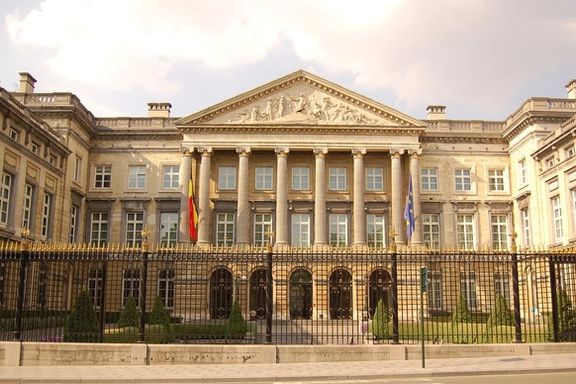
Numerous people and groups from around the world have warned about a prisoner exchange treaty between Belgium and Iran, pending approval at the Belgian parliament.
In a Monday statement on the eve of the parliament session to review the bill, more than 430 Iranian activists warned Belgian politicians against “giving the green light to state terrorism," demanding that the bill be abandoned.
The signatories noted that in case parliament approves the bill, the possibility of exchanging convicts will enable the Iranian government to continue abductions, hostage-taking and terrorist activities in Europe and elsewhere.
The draft law proposed by the Belgian government to the parliament could put the seal of approval on an agreement with Iran, which could lead to the release of Assadollah Assadi, an Iranian diplomat serving a 20-year prison sentence in Belgium for “attempted murder and involvement in terrorism” for his role plotting to bomb a gathering of the exiled opposition group Mujahedin-e Khalq Organization (MEK) near Paris in 2018.
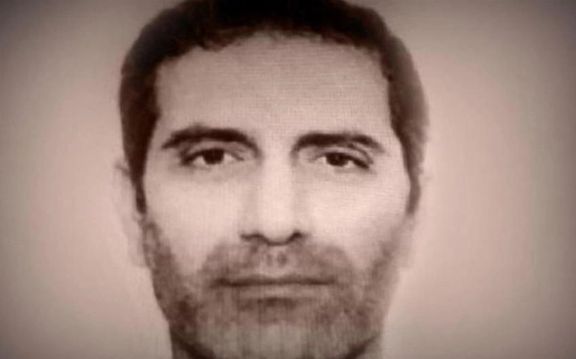
Earlier on Monday, a group of Iranians held a rally in Vienna to protest the possible extradition of Assadi to Iran.
Moreover, several former senior members of the US law enforcement and national security community, including former FBI Director Louis Freeh and some former US military commanders, sent a letter to the Belgian parliament urging rejection of the bill.
“This pending treaty is totally disrespectful to the law enforcement officers who risked their lives to prevent the 2018 attack. It also frustrates the judicial system’s ability to fulfill its mission to protect the citizens of Europe by denying it the ability to make perpetrators accountable,” read the letter, seen by POLITICO.
The authors warned that the treaty would effectively establish Belgium as a “sanctuary country” for terrorist operations, and a haven for Iranian intelligence services to maintain a European command center.
Three Republican US congressmen — Randy K. Weber and Louie Gohmert of Texas, and Brian Fitzpatrick of Pennsylvania — have also written a letter to Belgian Prime Minister Alexander De Croo calling on him to oppose the treaty. The lawmakers praised Belgian authorities for “preventing a heinous tragedy” by foiling Assadi’s “dastardly plot,” which they noted was carried out under the “ploy of diplomatic immunity.”
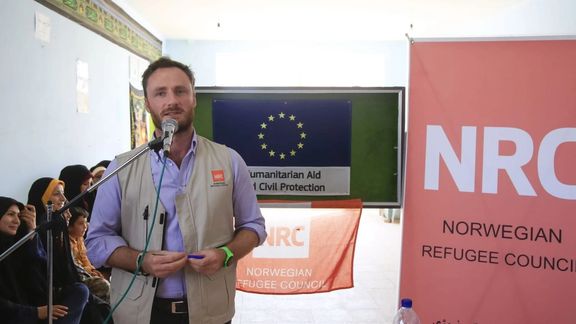
Also on Monday, Iran International broke the news that Tehran has detained a Belgian aid worker, identified as Olivier Vandecasteele, 41, since March, another example of the often-used Iranian tactic of imprisoning foreigners as hostages to exchange them with certain Iranians jailed in Western countries. He has served in various international humanitarian organizations since at least 2006, including, Médecins du Monde, Norwegian Refugee Council (NRC), and Relief International.
On July 2, an informed source had told Iran International that at least two Belgian citizens are currently in prison in Iran. One of the two is apparently an Iranian-Belgian professor from Leuven University, but the identity of the second prisoner was unclear until further investigation revealed it was Olivier Vandecasteele.
Following the controversy, the spokesman of the Belgian Federal public service of Justice, Edward Landtsheere told Iran International on Sunday that the bill on exchange of convicts is not intended for a specific person, but critics say it could end in repatriating the convicted former diplomat to Iran where he will most probably go free.
Although some activists, such as Oxford-based human rights lawyer Kaveh Moussavi, are of the opinion that the bill will not lead to Asadi’s.,release because such a move will be against a dozen international treaties to combat terrorism, there are Belgian politicians, such as representatives Theo Francken, Michael Freilich and Darya Safai who have warned of the dangers of the deal.
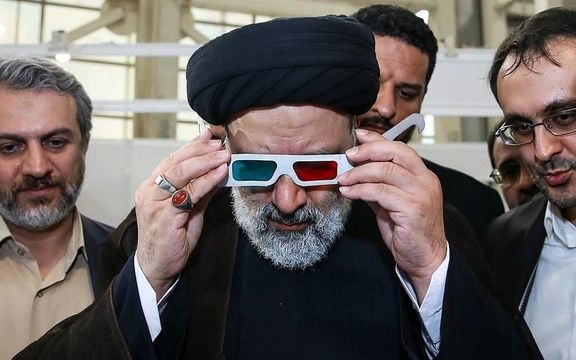
Amid general frustration with the performance of President Ebrahim Raisi’s performance, his newspaper claims most Iranians are hopeful about the future.
In a hurried response to results of a survey published by the Iran International on June 30, the Iranian government's newspaper, Iran Daily, has claimed that a poll shows 70 percent of Iranians have hope in the future. However, many Iranian analysts and social media users have dismissed the figures published by Iran Daily as fabricated.
Iranian analyst Jamshid Barzegar told the Iranian International TV that there are no independent polling agencies in Iran. The newspaper does not even name the source of the poll, simply mentioning “reliable local polls”.
The daily angrily asked why the results of the survey by the Washington-based Stasis Consulting published by Iran International corroborate what the Islamic Republic's critics say.
The Statis survey, revealed that only 28 percent of Iranians approved of the way President Raisi handled his job. Some 64 percent disapproved of his performance and 9 percent said they were undecided in their assessment of how Raisi has been performing.
According to the Statis survey, Raisi's approval rating is the lowest 1997 when data has been collected on Iranian presidents
“The single factor that Iranians thought could positively impact the future of the country is a successful nuclear agreement between Iran and the West, which might improve their economic situation,” the company that conducted the survey said in a press release.
Many social media users, including Iranian journalist Ehsan Bodaghi questioned the validity of the poll referred to by the government newspaper. Bodaghi wrote: "The administration-owned Iran daily newspaper has published the results of a poll that says 70 percent of Iranians have hope in the future. But the daily has not said when and where and with what methodology the poll was conducted. If it is not a fabricated poll, why they have not released these details? If it is a confidential poll, why have they published it?"
One of those who commented under the tweet observed that "They would not have reached this figure even if they conducted the poll among the cabinet ministers." Another user commented: "It is relatively accurate because most of the people hope that the ruling clerics in Iran will be annihilated this year and end up in the dust bin of history after the regime change."
The Iran newspaper also tried to attribute Iran's economic problems to the previous government and said that the survey conducted in June in Iran indicated that 45 percent of Iranians blamed the former government for the country's current problems.
In another development on Monday, reformist activist Ashraf Boroujerdi said surveys conducted in Iran show that that 67 percent of Iranians believed Raisi failed to stand by the promises he made to the people during his election campaign in 2021.
However, Raisi has his defenders among hardliners. State television presenter Amir Hosein Sabeti, wrote in a July 3 tweet that during the past year, without returning to the JCPOA Raisi has managed to import vaccines, make Iran a member of the Shanghai Cooperation Organization, pay the debts incurred under the previous government, and sell more oil and repatriate the oil money,"
Iranian cleric Rahmatollah Bigdeli responded to him that it was former President Hassan Rouhani who bought the vaccines, the Shanghai Cooperation Organization membership was done under former presidents and Raisi had nothing to do with it. He added that oil exports were allowed after Biden came to office and it had nothing to do with Raisi.
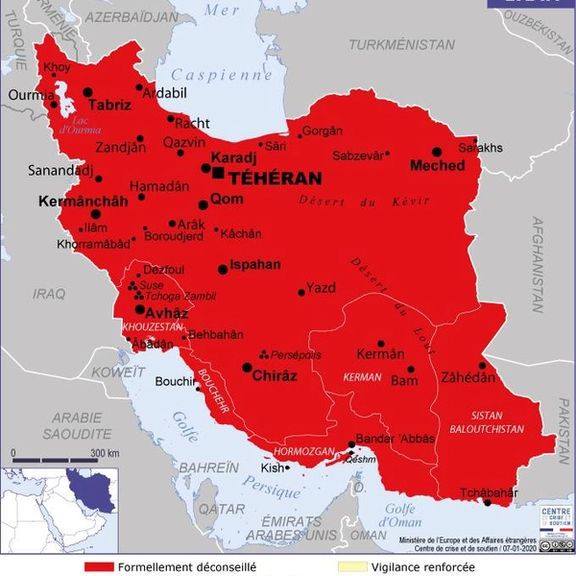
The French foreign ministry has warned French citizens and dual nationals against traveling to Iran due to the risk of arbitrary detention and unfair trial.
The ministry categorized the Iranian territory as “red” on its travel advisory map on Monday which means it formally advised French and dual nationals against going to Iran regardless of the reason.
It also urged French nationals visiting the country now to be highly vigilant and to take the necessary precautions to ensure their safety. “They are strongly advised to limit their movements within the country, to imperatively avoid any type of gathering and to make themselves known to the French Embassy in Tehran,” the notice said.
The ministry said the French – including people making a simple tourist visit -- are exposed to a high risk of arrest, arbitrary detention and unfair trial, adding that “in the event of arrest or detention, respect for fundamental rights and personal security are not guaranteed.”
It added that the ability of the French Embassy in Tehran to provide consular protection for nationals arrested or detained in Iran is very limited, and in the case of French-Iranian nationals, consular visits are not authorized as Iran does not recognize dual nationality.
In June, Sweden and Canada also advised their citizens against all travel to the Islamic Republic due to security risks to foreigners as well as the volatile security situation and the regional threat of terrorism.
In the past decade, Iran's Revolutionary Guards have arrested dozens of dual nationals and foreigners, mostly on unproven allegations of espionage in what human rights organizations have said is essentially hostage taking.
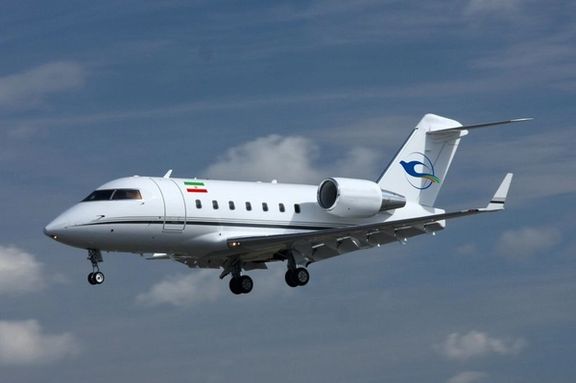
An Iranian airplane, operated by Pouya Air, was not allowed to land at Erbil International Airport on Monday, the airport’s director told to Iran International.
Ahmed Hoshyar said on Monday that the airport prevented the unauthorized cargo plane -- en route from Iran’s northwestern city of Orumiyeh – because it had not provided details about its crew, cargo and time of arrival.
According to Hoshyar, Iranian authorities had been informed about the necessary protocols before landing, including having a representative and renting an office at the airport as well as providing necessary data about the plane.
Pouya Air contacted Erbil’s authorities about the flight four days ago, but the company failed to fulfill the protocols, he said, adding that “the plane did not have any of the requirements needed for landing.”
Pouya Air is identified as an alias for Iranian airline Yas Air, under US terrorism sanctions since March 2012 for acting on behalf of Iran’s Revolutionary Guard’s Quds (Qods) force (IRGC-QF) for transporting illicit cargo, including weapons, to Iran’s clients in the region. The company began operations in 2000 as Qeshm Air but changed its name to Pars Air in 2006 and later to Yas Air in 2008, before it changed its name again to Pouya Air in late 2012.
Erbil International Airport, which houses personnel from the global coalition and US forces, has on many occasions been targeted by rocket and drone attacks, reportedly blamed on Iran-backed militias.
In June, a bomb-laden drone detonated in Erbil's outskirts and in April IRGC artillery fire hit an area north of Erbil, targeting what Iranian state television described as terrorist bases.
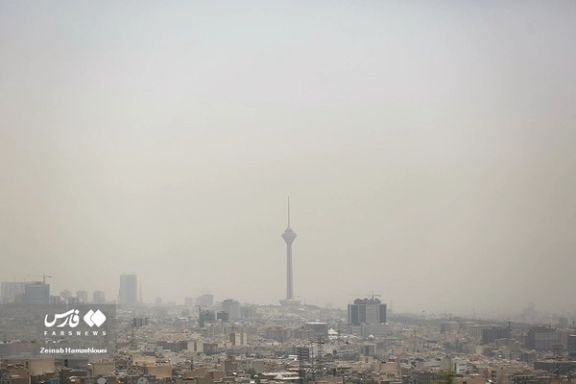
Sandstorms and dangerously polluted air led to the closure of schools and some government offices in Iran’s capital Tehran as well as several other cities across the country on Monday.
Abed Maleki, a senior member of the city’s governor-general’s office, announced the closures Sunday evening, and cautioned vulnerable residents to take precautions. Banks and the Tehran Stock Exchange would remain open, he added.
According to reports, several cities from the North Khorasan province to the southwestern Khuzestan province are also shut down, with many citizens decrying the government’s discrimination in announcing the closures. The level of pollution is much higher in eastern and southern cities but the government rarely shuts down schools and businesses.
Tehran was logged as the most polluted city in the world in April with air quality hazardous and visibility very low largely due to the very high level of airborne particles. The capital’s pollution is mainly blamed on poor government policies, desertification and low water levels, as well as climate change that has intensified sandstorms.
Since mid-March, massive dust storms have hit various parts of the country, causing a health crisis that has forced the government to shut down schools and government offices in some cities and cancel outdoor sporting events on multiple occasions.
Dust storms, originating in both Iran and neighboring countries, have also increased markedly in recent years in several Iranian provinces, notably Khuzestan, Kermanshah, and Sistan-Baluchestan.
Moreover, the usage of highly polluting diesel and mazut fuels in power plants jumped in Iran in 2021 on top of increases in previous years.